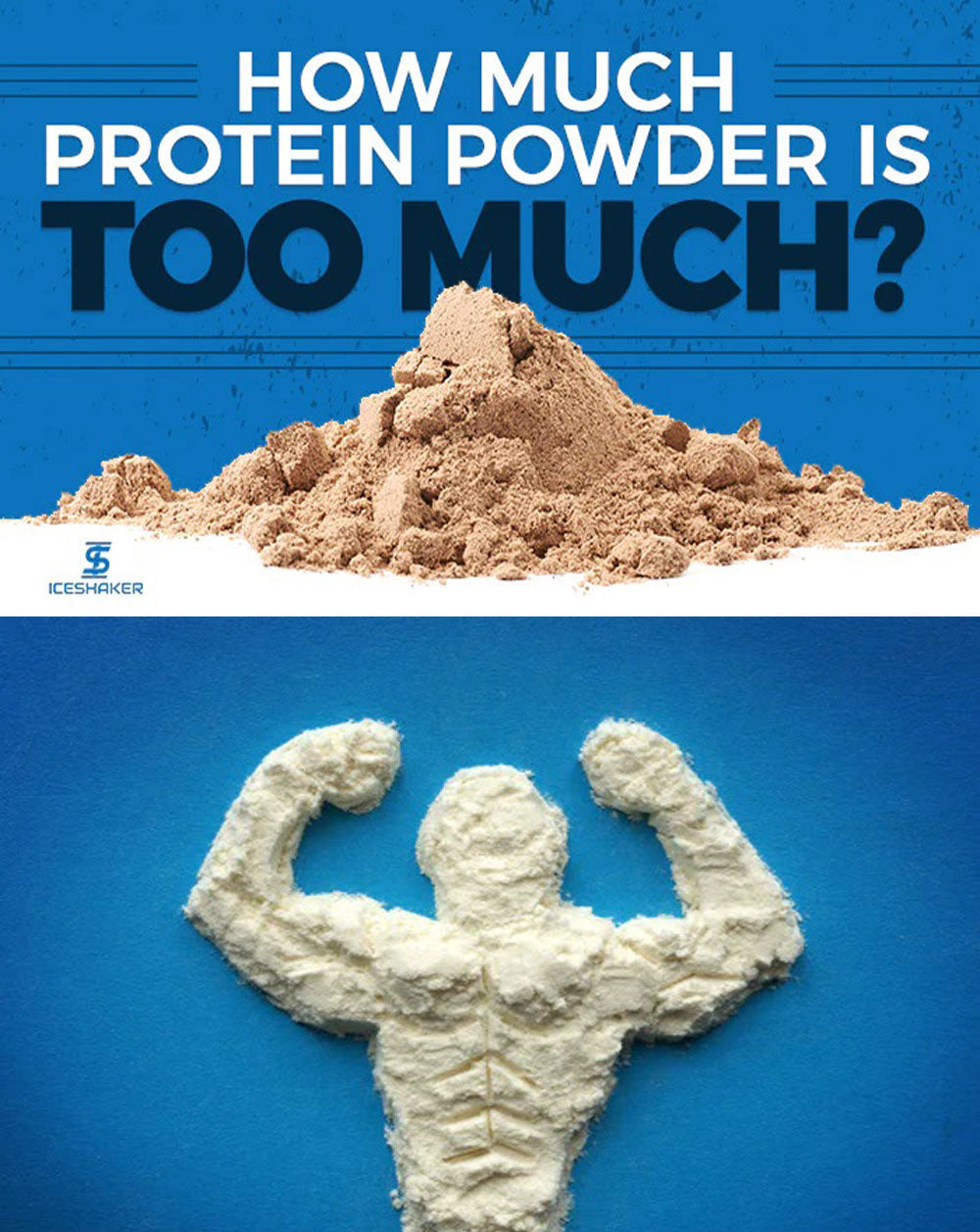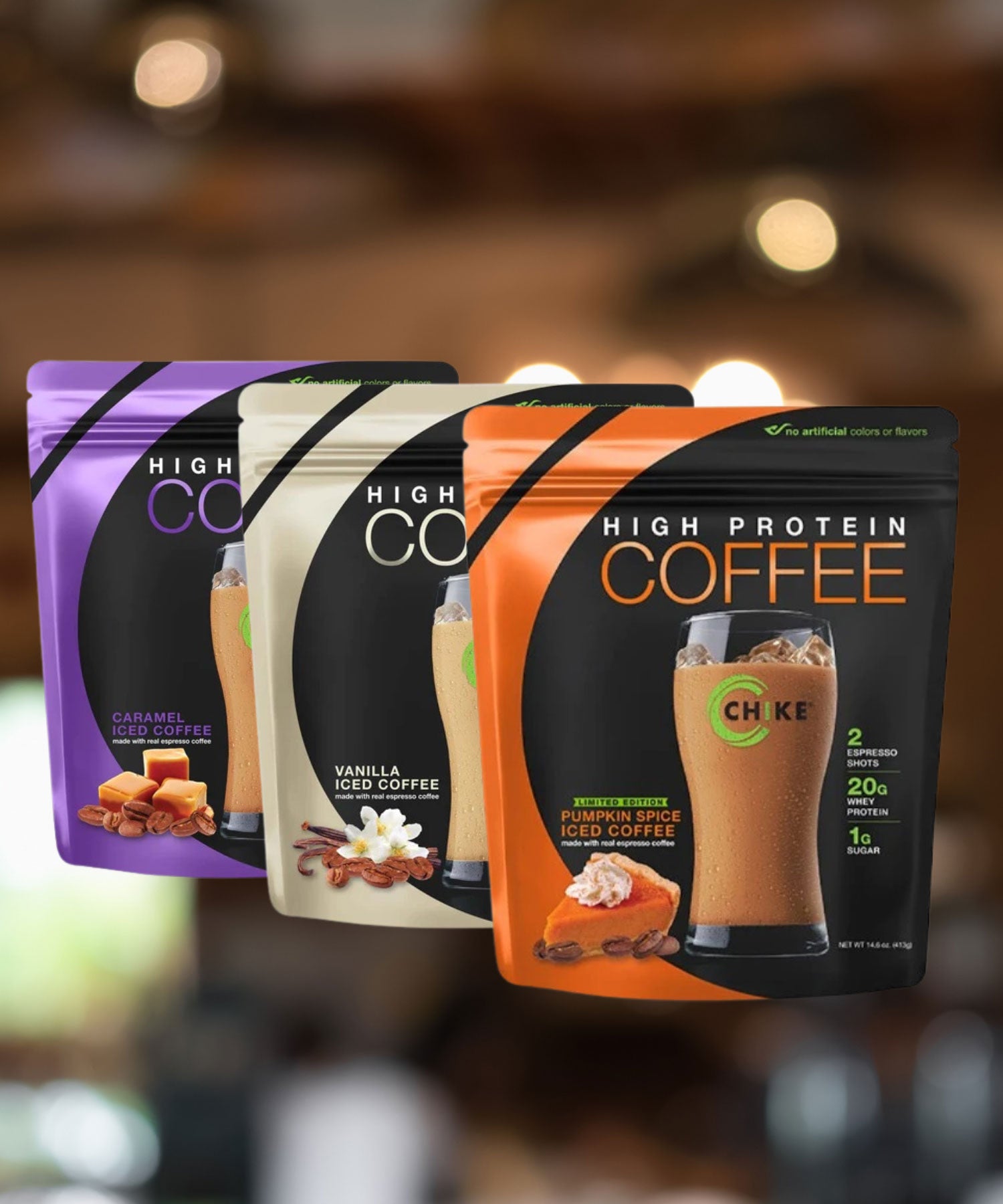Protein powder is a beneficial supplement to work into your everyday diet because it can boost protein intake without adding too many extra calories. This is important for people who are trying to lose weight because you need to burn more calories than you consume. Drinking a protein shake one to two times per day will ensure that your body is receiving a proper amount of protein without packing on additional calories.
Protein is essential to your body’s functions because almost every part of your body is composed of protein and amino acids, which bond together to create protein. However, you should not become too reliant on protein powder as your sole source of this macronutrient. Learn more about protein powder and how to safely integrate it into your diet.
How Much Protein Do You Need Each Day?
Before you can understand how much protein powder you should ingest every day, you should have an idea of how much protein your body requires to function properly. The ideal amount of protein intake per day varies by person to person, but the basic rule is that you should eat 0.36 grams of protein for every pound of body weight you have. For example, if you’re a 125-pound woman, you should be eating about 45 grams of protein every day (here’s the actual calculation: 0.36g x 125lbs = 45 g). On average, women should aim to have 46 grams of protein per day and men should aim for 56 grams.
However, other factors besides body weight have an effect on your protein intake. If you are very active, you need to consume more protein than the average person because you are likely burning up that energy provided by protein, and you need additional nutrients to continually rebuild and recover your muscles. Anyone who works out at least four to five times per week should try to eat close to 1.0 to 1.2 grams of protein per pound.
How to Calculate Your Daily Protein Intake

For sedentary people: 0.8 g protein x body weight in pounds = protein intake per day
For very active people: 1.2 g protein x body weight in pounds = protein intake per day
Another way to track how much protein you should be consuming in a single day is by allowing protein to make up no more than 10 to 35 percent of your total calorie intake.
Recommended Amount of Protein Powder Per Day
Now that you have a better understanding of how much protein a person needs to consume during an entire day, you’ll be able to determine how much protein powder is healthy to consume. Theoretically, you could draw all of your daily protein from protein powder, but you should not attempt to do this because there are many other vital nutrients that you receive from actual food. One scoop of protein powder is typically about 25 grams of protein. Most active people drink one protein shake per day, which contains a single scoop of protein, meaning that you are receiving nearly half of your daily recommended protein intake from this shake. It’s recommended that you try to only consume somewhere between 25 to 50 grams of protein from protein powder each day. In the past, there have been claims that high-protein diets can have dangerous health effects like kidney damage, but research has disproven this.
Protein is a necessary part of your diet and, without it, your body would not be able to perform necessary tasks. One study did discover that anyone with a pre-existing kidney condition should be more careful about their protein consumption and may need to lower their intake to avoid complications.
Overall, consuming too much protein is not detrimental to your health unless you are only receiving it from unhealthy sources, and you do not participate in any physical activity. Identify how much protein is ideal for your body and try to stick to this range.
When it comes to protein powder, you should avoid consuming more than 50 grams in one day because it can cause health issues. You need a balance of macro- and micronutrients as well as vitamins and minerals to help your body function at optimal levels. Protein powder is mainly comprised of protein, which is great when you need an extra protein boost, but your body needs much more to fuel it. Alongside your protein shakes, you should be consuming foods with carbohydrates, good fats, vitamins and minerals. Limit yourself to one to two protein shakes per day and focus on which foods you eat during meal times.
Signs of Protein Deficiency
Protein deficiency is rare amongst Americans, but it does happen. To avoid deficiency, calculate your ideal daily protein intake and track how much protein you’re getting in a single day. If you think you are suffering from a protein deficiency, you might notice symptoms such as fatigue, hair loss, change in nails, mood swings, viral or bacterial infections and constant food cravings. After identifying any of these symptoms, you should visit your doctor to see if you do have a protein deficiency and allow him or her to help you devise an eating plan to help avoid this issue in the future.
Effects of Overconsuming Protein Powder
Relying too heavily on protein powder as your main source of the macronutrient has some adverse side effects, including digestive issues. But the biggest issue with protein powder overconsumption is that you are also likely creating nutrient “holes” in your diet. This means that you’re relying too heavily on protein as your main source of sustenance without incorporating other vital nutrients. Remember the rule about keeping protein consumption to about 10 to 35 percent of your total calorie intake. This guideline will help you to incorporate different foods such as legumes, grains, high-fiber items, as well as fruits and veggies, to give you a well-rounded diet.
Different Ways to Use Protein Powder
The most common method for consuming protein powder is by adding water and mixing it in a protein shaker. This is a quick, easy way to prepare protein powder and can be taken with you anywhere. For the best results when making protein shakes, consider investing in one of Ice Shaker's Ice Shaker Bottles. Made from premium kitchen-grade stainless steel and double wall vacuum insulated, Ice Shaker Bottles will keep your protein shake cold for up to 24+ hours! Plus, the patented agitator ensures a perfectly blended shake every time! Trust us! You won't regret getting an Ice Shaker Bottle if you're serious about your protein shakes.
Get creative and try new protein shake recipes or use your protein powder to make other food items besides shakes. Protein cookies are a popular alternative to shakes. Some people mix protein powder into other foods for an extra boost. Purchase a protein powder that doesn’t have a strong flavor (like vanilla or chocolate) and you can add it to items such as soups, guacamole or other kinds of dips like hummus and even desserts.
You can also try different forms of protein powders besides shakes. For example, protein coffee and protein tea are a popular alternative. Available in powder form, just add a scoop to hot water, shake, and you're good to go.
Other Sources of Protein
Relying too heavily on protein powder will throw your diet off balance and may lead to adverse health conditions. Try to remember that everything is better in moderation. Determine your ideal daily protein intake and then begin to incorporate one or two protein powder shakes into your diet, usually during the time that you exercise. Outside of this time, you should be designing a diet for yourself that also includes some of these protein sources for a more balanced diet.
Meats

Meat is one of the most well-known sources of protein. Whether you include chicken, turkey, beef or fish into your meal, you’ll receive a higher level of protein from these sources than others. Chicken is known to be low in fat but high in protein, so it’s a great lean meat to consume on a daily basis. Another white meat, turkey has similar benefits to chicken. Fish is an important source of protein as many fatty fishes also contain omega 3 fatty acids, which have been proven to reduce heart disease, lower blood pressure and decrease the risk of stroke. Beef also has some health benefits such as building immune strength and building muscle and tissue, but most nutritionists recommend limiting your red meat intake to twice per week.
Quinoa

For those who follow a plant-based diet, it can be much more difficult to find quality sources of protein to integrate into their diet. Quinoa is one of the best non-meat protein sources. An ancient grain originating in South America, quinoa has eight grams of protein in one cup but also contains vital nutrients like fiber, manganese, magnesium and iron. For a midday protein boost, try making a quinoa salad with other vegetables mixed in. During dinner, quinoa can be a protein-packed side or the star of the meal.
Peanut or Almond Butter

Peanut and almond butter are great sources of protein, but you want to make sure that you’re purchasing all-natural foods. Highly processed peanut butter often contains too much sugar and other ingredients that make it more unhealthy than nutritious. With nearly eight grams of protein in every two tablespoons of peanut butter, you can use this source of protein as the main component of a meal (think peanut butter and jelly sandwich) or as a healthy snack paired with slices of fruit.
Nuts

One of the most important elements to designing a healthy diet is cutting unhealthy snacks out of your diet and incorporating small, healthy snacks throughout the day. You should try to consume three meals each day but be careful to avoid overconsumption. Then, supplement your diet throughout the day with other snacks. Nuts are highly recommended by nutritionists because they don’t include a lot of calories and they are packed with protein and vitamins. Some of the nuts that are highest in protein include almonds, peanuts, pistachios and cashews.
Be Sure to Also Consume These Nutrients
Focusing on your protein intake is important to living a healthy lifestyle, but if you’re trying to create the ultimate diet for yourself, don’t neglect these other nutrients.
Carbohydrates
Unfortunately, carbohydrates tend to get a bad rap from the dieting community, but this macronutrient is actually essential to healthy eating. Some diets recommend cutting carbs out entirely, which means you’re eliminating an essential part of your diet. Limiting your carb intake can be beneficial as some sources of carbs are considered “empty carbs,” which means they provide little to no nutritional value but add many calories to your daily intake. Carbs are particularly important to consume post-workout because they help fuel your muscles. Carbs are converted into glycogen, which is then burned up during exercise. After you’ve worked out, you need to replenish this store of energy. Good sources of carbs include oatmeal, brown rice, sweet potatoes and whole wheat bread.
Good Fats
Though the word “fat” often has negative connotations, there are many types of good fats in different food sources that our bodies need. Omega 3 fatty acids are one example. Found mainly in fish and nuts, omega 3 is hugely beneficial in promoting heart health and protecting us from diseases. Monounsaturated and polyunsaturated fats are typically cited as the two healthy options and can be found in avocados, nuts and a variety of oils (sunflower, peanut, sesame).
In order to create an ideal diet, you should focus on incorporating foods high in good fats and eliminate foods that include bad fats (saturated fats and trans fats). Foods that tend to include unhealthy fats are dairy, baked goods and processed meats. This does not mean you need to eliminate these foods from your diet completely but be aware of the health effects and limit your intake.
Vitamins and Minerals
Your body runs on dozens of different vitamins and minerals, but luckily you can find most of these nutrients in the same sources. Foods with protein, fats and carbs often include some levels of vitamins and minerals, but you should be aware of which nutrients are most important and what sources contain these. Calcium helps to build strong bones and teeth and can be found in dairy as well as leafy greens and other veggies.
Vitamin C is important to building a healthy immune system and is present in citrus fruits like grapefruit as well as greens such as kale. Iron is a vital mineral to consume enough of because it also helps with your immune system. Having too little iron, known as anemia, is a common ailment that should be addressed by eating more foods with this mineral including beans, spinach and red meat.





